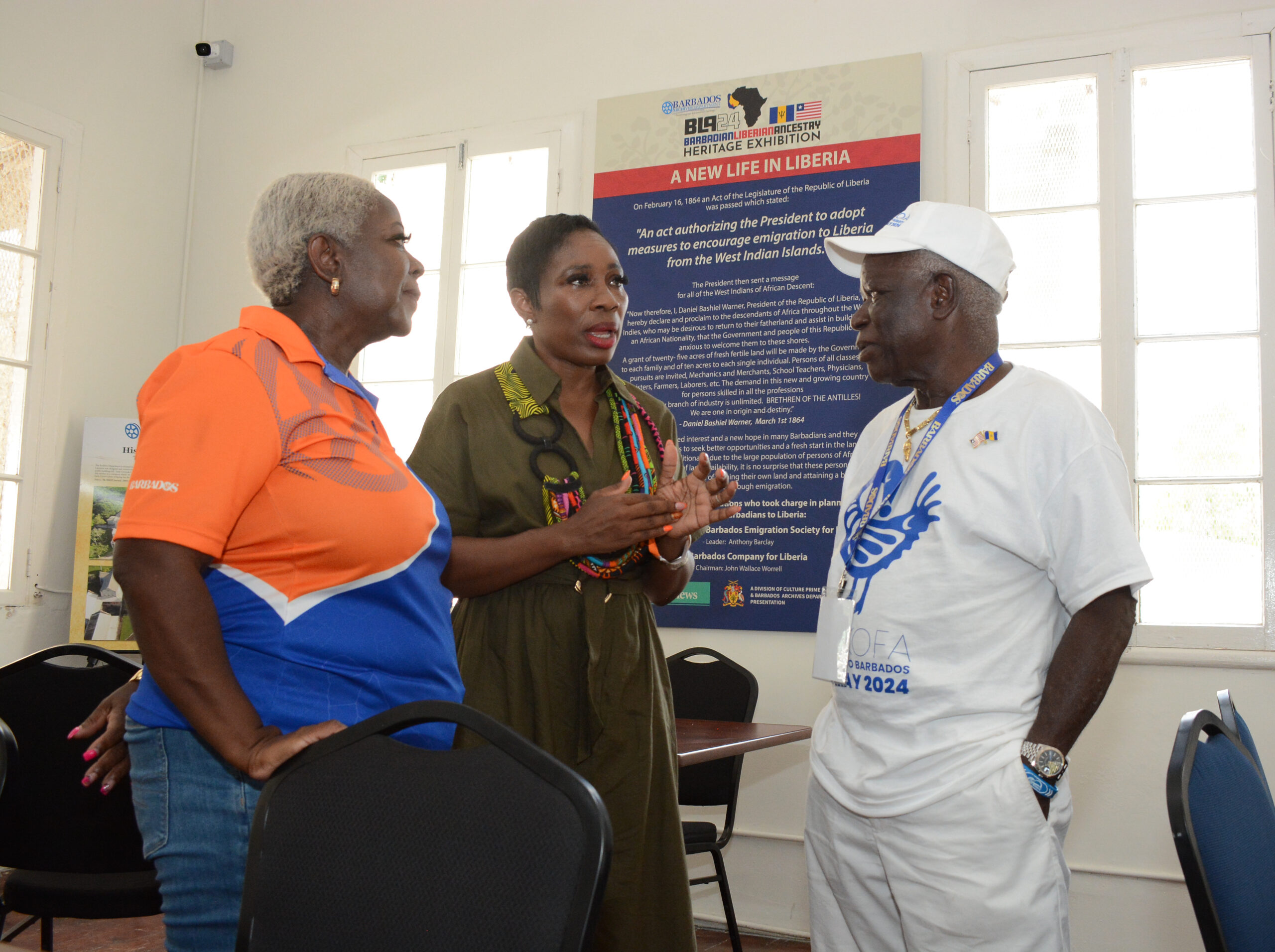Annual Genealogy Marketplace Honors Descendants of 1865 Barbadian Emigrants to Liberia

May 9, 2024
Descendants of Barbadian emigrants to Liberia gather at the Genealogy Marketplace, celebrating shared heritage and culture. Exhibitions showcase Barbadian traditions and upcoming museum plans are discussed.
Scores of people, including visiting descendants of Barbadian emigrants to Liberia, gathered at the Department of Archives on Wednesday for the eighth annual Genealogy Marketplace as the event marked a special arrival of descendants from a single 1865 sailing to West Africa.
“This particular genealogy marketplace is happening today because we have a group of Liberians whose ancestors would have left here 159 years ago,” Madge Darylmple, product development officer of Barbados Tourism Marketing Inc., told Barbados TODAY at the Department of Archives in Black Rock, St Michael.
“There were 356 Barbadians on that ship, and they took so much of our race and culture to Liberia that visiting Monrovia today feels like you’re in Barbados. We want to make this group feel welcome and encourage them to mix with the Barbadians because they’re all family.”
The marketplace featured various exhibitions, giving attendees access to Barbadian culture including its food, music, spirits, and literature and an opportunity to explore ancestry and share cultural stories.
An upcoming museum dedicated to the history of Barbados’ people and diaspora was also touted, although details were not forthcoming.
“We are creating a space in the world for countries like ours, small though we are – but as somebody said, ‘small but tallawah’ – small but a big voice, small but we intend to take up some space in this world,” said Minister in the Prime Minister’s Office with responsibility for Culture Senator Dr Shantal Munro- Knight, invoking a Jamaican idiom.
She suggested that historical accuracy was important in an era of misrepresented narratives.
“It’s also about healing. Healing a lot of that damage that has been done to us. It is about healing that inner self. Someone calls it the collective unconscious and that collective unconscious is about that part of us inside that has ancestral memory. But even though we may not know it and understand it, there is a yearning for us to be able to connect and know and understand ourselves,” she said.
She cautioned: “Across the United States, there are already places in which they are rewriting textbooks, in which they are putting aside certain texts, in which they are creating a narrative stating that not only were slaves complicit, but that they benefited and were satisfied with slavery. So if we are not careful guardians, if we don’t pass on the legacy of resilience to our children, we have to be careful, lest [that narrative] is repeated.”


